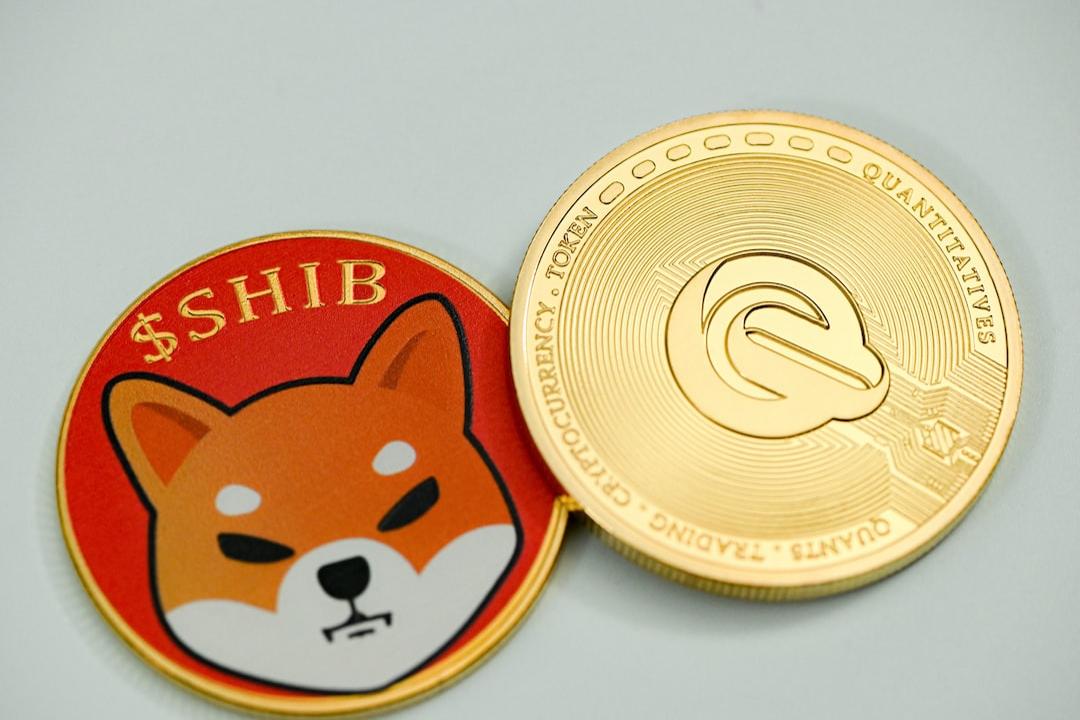Development of Cryptocurrency Regulation in Asia: Hong Kong and Singapore Emerge as Top Choices for Cryptocurrency Companies, Attention on Taiwan’s Cryptocurrency Draft Law
Foreign media The Block today (26) explores the current state of cryptocurrency regulation in countries including Hong Kong and Singapore, stating that both countries are in a leading position in the industry, especially the former, which is dedicated to becoming the Web3 innovation center in Asia. In addition, the recently proposed “Cryptocurrency Act” in Taiwan has also attracted attention.
Table of Contents:
Toggle
Hong Kong
Singapore
Japan and South Korea
Taiwan
Is Asia the Future of the Cryptocurrency Industry?
As a highly anticipated new center for the cryptocurrency industry, Hong Kong has implemented a cryptocurrency regulatory framework since June this year, granting licenses to operators of virtual asset trading platforms, and imposing strict restrictions and regulations on investment products and stablecoins.
(Regulations on cryptocurrency in Hong Kong will be implemented on June 1st: exchanges have a heavy responsibility to protect retail investors and are temporarily prohibited from trading stablecoins.)
Advertisement – Please scroll down for more content




In November, Hong Kong also conducted relevant regulatory research on aspects such as the implementation of tokenized securities and tax exemptions for investors.
A few days ago, Hong Kong also announced that it is ready to accept the listing of virtual asset spot ETF products. This is expected to make Hong Kong the first market in Asia to allow the listing of virtual asset spot ETFs, further strengthening its position as the leading digital asset center in Asia. Donald Day, CEO of Hong Kong cryptocurrency platform VDX, said:
Hong Kong’s stable and reliable regulatory system is a competitive advantage in establishing and operating compliant digital asset businesses.
Despite facing major crises such as the bankruptcy of Three Arrows Capital, Singapore still attracts many global companies in the cryptocurrency and Web3 fields to establish their headquarters in the country.
At the same time, the country has recently focused on regulation and issued the final version of the stablecoin regulatory framework in August. It has also issued digital token major payment institution licenses (MPI) to US exchange Coinbase, South Korean exchange Upbit, and Taiwanese exchange XREX.
(Singapore’s Monetary Authority prohibits retail leverage and margin trading, and encrypted payments with credit cards.)
Earlier, the Southeast Asian super app “Grab” launched an in-app blockchain wallet with the ability to manage digital assets, which was also part of the project called the “Project Ubin” proposed by the Monetary Authority of Singapore (MAS) in 2021.
It is understood that the project mainly focuses on the use of central bank digital currencies, asset tokenization (RWA), and stablecoins.
In addition to Hong Kong and Singapore, which have attracted attention from all walks of life, Japan, which is actively legislating, and South Korea, which has a thriving trading market, are also contributors to the development of cryptocurrency in Asia.
When it comes to Japan, investor protection has always been one of the reasons for its commitment to cryptocurrency legislation and pilot projects, including ongoing amendments to relax the heavy tax system and multiple attempts at stablecoin and cross-network digital asset trading pilots.
In addition, the Japanese financial giant SBI Holdings has also been cooperating with cryptocurrency companies from various countries in the past six months, from payment network Ripple, Standard Chartered Bank’s venture capital department SC Ventures, to stablecoin issuer Circle, focusing on exploring the application of digital assets.
In South Korea, the local government of the second largest city, Busan, revealed last month that two companies will jointly launch and operate the “Busan Digital Asset Exchange”, which is expected to debut in the first half of next year.
Data also shows that the enthusiasm for cryptocurrencies in South Korea has far exceeded expectations.


Upbit: pink, Coinbase: yellow
In fact, the monthly trading volume of Upbit, the largest local exchange, often exceeds that of Coinbase. According to statistics, Coinbase’s spot trading volume from this month to date is $55.2 billion, while Upbit’s is an astonishing $71.8 billion.
It is worth mentioning that Taiwan’s “Cryptocurrency Act,” which was read for the first time in October this year, also received attention from The Block.
However, the follow-up to the bill was dampened at the “2023 Taiwan Virtual Economy Forum” when legislator Zeng Mingzong poured cold water on it, stating that the current discussions tend to not pass the bill, emphasizing that the content related to consumer protection, financial investment, and payment definitions is still not clear enough.
It is understood that the bill actually has many concerns and loopholes, including misunderstandings in the process of quoting international regulatory frameworks, lack of registration mechanisms, and lenient penalties.
(“Cryptocurrency Act” is for the protection of businesses or consumers? Professor Yang Yueping interprets Taiwan’s regulatory path.)
However, the Financial Supervisory Commission of Taiwan has also announced the “Guiding Principles for Virtual Asset Service Providers (VASP)” in September this year, officially supervising domestic and foreign currency dealers. At the same time, in order to address concerns about exchange user accounts, it has included them in the legal scope of the newly proposed Anti-Money Laundering Act.
In September this year, in an interview with Rune Christensen, the founder of MakerDAO, at the Token2049 event, he also mentioned his positive views on the development of the cryptocurrency industry in Asia.
Rune not only praised the recent friendliness and openness of the Japanese government towards the cryptocurrency industry, but also felt the strong differences and contrasts between Asian and Western regulations. He emphasized that developers can go to Japan, South Korea, Singapore, and other places at any time without worrying about regulatory uncertainties:
People have been saying for many years that Asia will be the future of the cryptocurrency industry, and it may finally happen now.
Asia
Taiwan
Singapore
Japan
South Korea
Hong Kong


Further reading
IMF: Asia is more accepting of cryptocurrency assets and has high stock market connectivity, highlighting the necessity of regulation
A large amount of gold is fleeing from Hong Kong! Max Keiser: Only Bitcoin can allow you to take it with you
